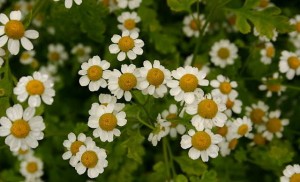What can herbal medicine do for me?
What are the benefits of herbal medicine?
Are you opposed to conventional medical treatment?
Who can benefit from herbal medicine?
What parts of plants are used?
How long do you have to take the remedies for?
How long has herbal medicine been around for?
Where will I get the medicine from?
Do you make all the remedies yourself?
What can herbal medicine do for me?
Properly used, herbs can improve your health. Herbal remedies can be used to effectively treat illness and also to enhance the way your digestion, circulation and other systems function to improve your well-being and prevent disease. Herbal medicine can treat many of the same diseases that pharmacological medicines are used for. Medicinal plants also possess actions that have not been harnessed by pharmaceutical drugs as yet, such as enabling your body to adapt to physical and mental stress, and so offer different treatment options.
What are the benefits of herbal medicine?
Herbal medicine offers many benefits, being a safe, effective and gentle treatment. In addition, they have a much lower impact on the environment than pharmaceuticals – there aren’t any “food miles” in picking peppermint from your garden to make a tea! As many herbs are also foods, they can change our perspective on health to one of preventative maintenance of good health by including herbs as part of a varied wholefood diet. Using herbs also re-connects us to Nature – an increasing distance from Nature in our fast-paced modern lives can be stressful and reduce immune function. Herbal medicine is a holistic practice, where the emphasis is on identifying the cause of the symptoms and treating the whole person, not the disease.
The simple answer is yes, provided that your condition has been diagnosed and prescribed for correctly. There is a growing body of scientific research detailing the effectiveness of some herbs (there are a lot of plants used medicinally and science hasn’t studied them all yet). Mostly they confirm the traditional use, though some novel uses have been discovered.
Again, the answer is yes if used carefully and with common sense. There are many medicinal herbs that are also used as foods and are generally safe, as well as stronger herbs that are used only as medicines and with appropriate caution. In all cases, your herbalist will determine the correct dosage and match the herbs to your needs.
Are you opposed to conventional medical treatment?
NO. Pharmaceutical drugs offer many advantages in acute illness; antibiotics have saved many lives. However, there are definitely situations where herbs can be equally effective and gentler on the body. I am an advocate for Integrated Medicine, where conventional medical knowledge is used alongside herbalism, nutrition etc. to provide the best treatment options for each person. Many (though not all) herbs can be safely used alongside an existing drug regime to support the body’s healing.
Who can benefit from herbal medicine?
Herbal medicine can benefit everyone as long as the correct herbs and dose are used. Some herbs are too potent in action to use in pregnancy, for young children and in frail individuals.
What parts of plants are used?
Depending on the herb in question, the flowers, leaves, berries, seeds, roots or bark are used. For some plants, such as elder, several different parts are used and have different medicinal properties, e.g. elderflowers for hayfever, elderberries for boosting the immune system.
How long do you have to take the remedies for?
This very much depends on the condition and the person being treated. A generally healthy person with e.g. influenza will require very frequent doses of medicine for perhaps 2 weeks, while someone with a long-term condition may require several months of treatment, though they would make visible progress during that time.
How long has herbal medicine been around for?
Herbal medicine is the oldest medical system known to man. It has a written history spanning 5,000 years and medicinal plants were found in a 60,000 year old tomb in Iran.
When looking for a herbalist, check that they are registered with a professional body, such as the Irish Register of Herbalists (ww.irh.ie). This ensures they are appropriately qualified, insured and comply with annual training requirements. Herbalists vary widely in their approach to the patient, so find one that you feel comfortable talking to and that matches your approach to health.
Where will I get the medicine from?
Herbalists generally maintain their own dispensaries, so you will receive your prescription directly from your practitioner rather than going to a separate pharmacist.
Your herbalist will give you full instructions on how to take your prescription. Herbs can be prescribed in the form of:
- tea (brew as instructed),
- tincture (herb preserved in alcohol, take prescribed amount diluted in water),
- powder (sprinkle into food or dissolve in a little water/milk)
- Capsules (take as directed)
- Ointment or cream – to be applied to skin
Do you make all the remedies yourself?
No, I don’t. I do collect and dry some herbs, and make some tinctures myself, but not enough to keep a busy practice well-stocked. The rest I buy in from reputable and ethical suppliers in Ireland and the UK, ensuring that all herbs I use are sustainably sourced, and organic where possible. I do make a range of my own products, including teas, creams and syrups, which are available from my dispensary.

